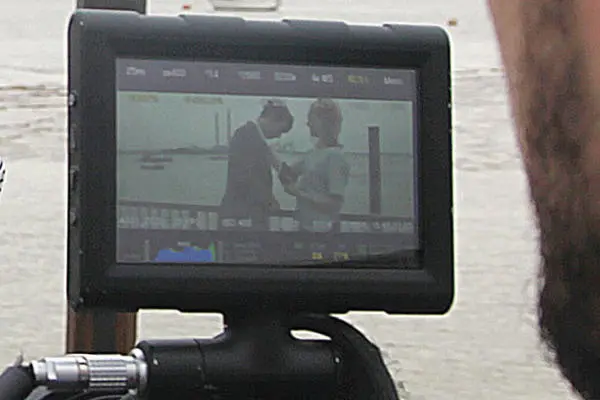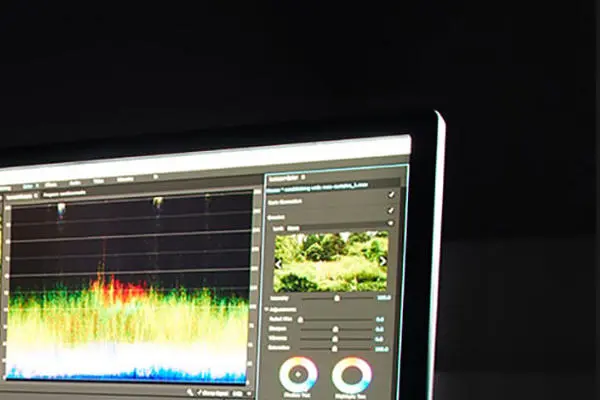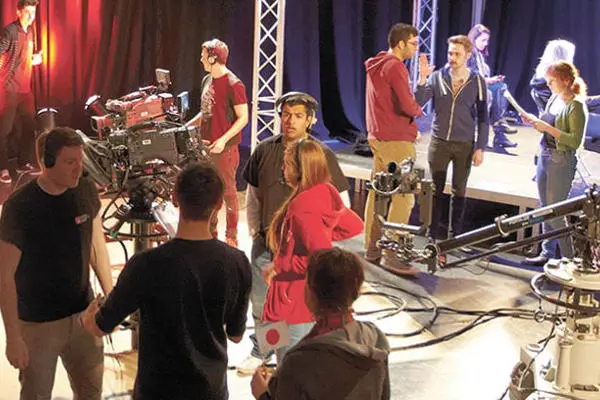
What does your role as a director involve?
The role of a director can vary greatly—whether you're in pre-production, on set, or in the edit. At its core, it’s about having a clear vision and guiding each department so they can do their best work.
Being decisive is key—everyone looks to you for direction. The more prep you do and the better you know the script or the world you're building, the easier it is to make confident decisions. Whether it’s what colour should someone’s shirt be, what angle to use or how to cut a scene together, you need to be the one with the answers.
What’s a typical day like on set or during pre-production?
My day usually starts early—I like to be one of the first on set. It gives me a chance to settle in, get a feel for the location (especially if it’s new), and prepare before the day kicks off.
Once the crew arrives, I check in with all the heads of department to make sure everyone’s aligned and in good spirits. Then I meet with the Director of Photography and 1st AD to go over the schedule for the day.
Then we get going and start shooting! This often involves being flexible and prepared for whatever may come along, making decisions on the fly if the schedule changes or something crops up. It can involve a lot of people shouting your name at once!
But with a strong team and solid prep, the day usually runs smoothly. At wrap, I always make a point to thank the cast and crew for their hard work. I also help with the pack-down where I can. Then it’s home—and I’m usually asleep the moment my head hits the pillow.


The course covered such a wide mix of theories and topics. It really gave me a lot to draw on when I was directing my feature.
What has been your biggest achievement in your career as a filmmaker so far?
My biggest achievement so far has definitely been having my feature debut premiere at BFI Flare. To have sold out a 500-seat cinema at the biggest LGBTIQ+ film festival in Europe was already amazing, but then to feel the energy of the audience as we watched it, hearing people laugh, and cry and clap was a huge rush!
And on top of that, people came up to me afterwards to compliment the film or say how much they related to it. It was a wonderful night that made me feel very proud of what I have accomplished.
How did your studies at Solent help shape your journey into feature filmmaking?
My studies at Solent prepared me by giving me knowledge of both the practical side of filmmaking as well as the historical and theoretical contexts of different styles of filmmaking.
I left with a solid understanding of how a set runs and the different roles involved, which made it much easier when it came to assembling a crew and managing a production.
What really stood out, though, was the breadth of theories and topics covered on the course. It gave me a lot of creative references to draw from when directing my feature.
One of my biggest inspirations was the 2011 film Weekend—I actually wrote an essay on it in my second year.
What advice would you give to aspiring filmmakers looking to break into the industry?
My main advice would be to keep going! There’s no way of telling when you can get your break. You can’t compare your journey to everyone else’s. In my experience, the people who succeed in this industry are the ones who persevere the longest. While timing and a bit of luck can play a role in getting your foot in the door, you can significantly improve your chances by consistently practicing your craft and making connections. That way, when opportunity comes knocking, you’re not just ready—you’re the obvious choice.















